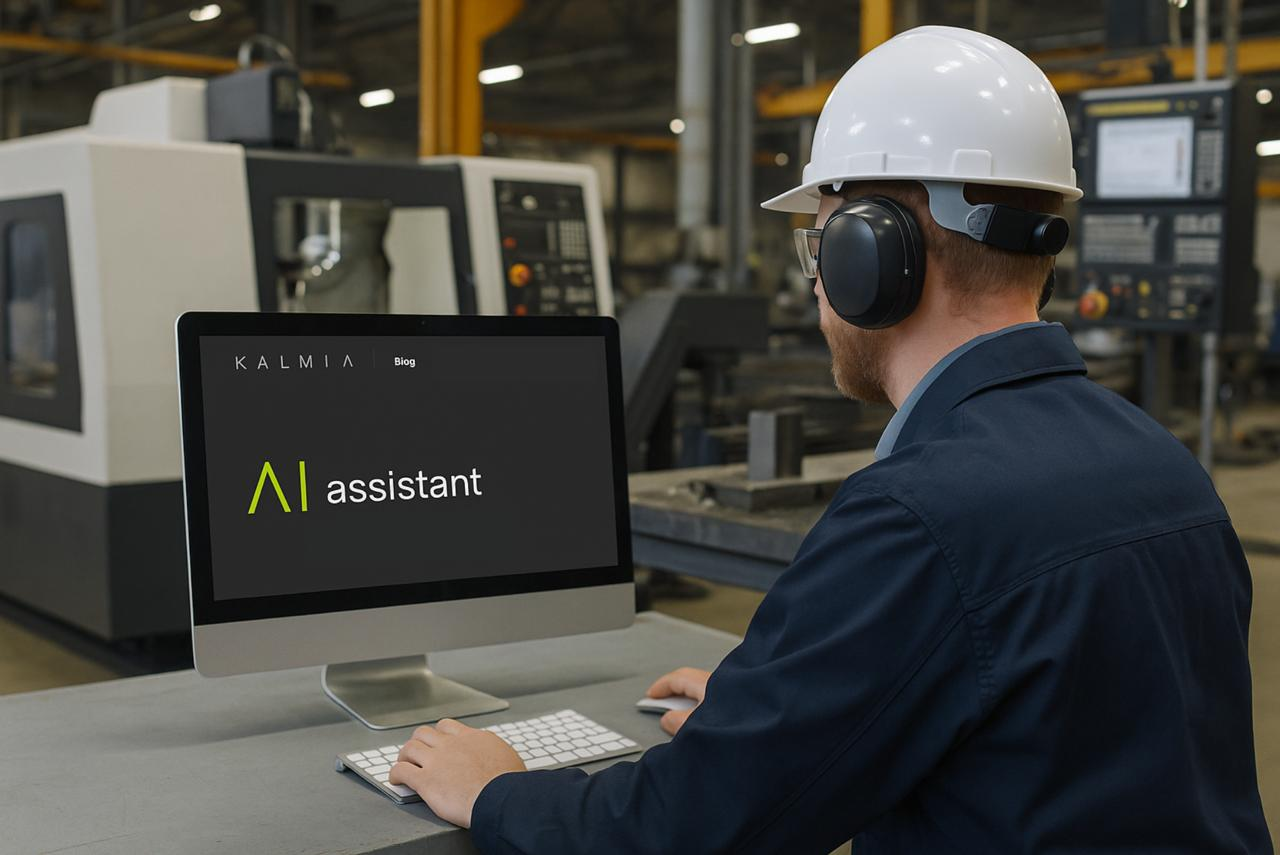
In modern industry and manufacturing plants, every minute counts — and the introduction of Artificial Intelligence can make the difference between responsiveness and delay, between improvisation and control.
Companies are using AI to optimize processes, predict machine failures, and monitor quality — with results that show in time savings, lower costs, and greater production reliability.
But the foundation of progress isn’t AI itself — it’s data.
This means that the effectiveness of these systems depends not only on the technology, but on how well a company manages and leverages its information.
So-called “bottlenecks” that often occur aren’t always mistakes — they’re frequently the result of processes where people simply can’t keep up with the speed the market demands. But once data is connected into intelligent systems, processes accelerate, errors become rarer, and work becomes easier.
Smarter Onboarding and Assistance for CNC Machine Operations
Challenge
When working with complex machines such as CNC milling or turning machines, new employees often face long onboarding procedures. Even experienced operators sometimes need to look up instructions for uncommon tasks — meaning time lost searching through manuals.
How the AI Assistant helps
The smart assistant enables employees to instantly get answers to technical questions like:
“Which parameter affects cutting speed?”
or “What step comes after a tool change?”
Through a sequence of questions and answers, the assistant guides the user step by step and explains parameters — just like a mentor would (except the assistant doesn’t have to search through a thick manual).
Result
Onboarding new employees becomes much faster since they no longer need to browse manuals or rely on experienced colleagues.
Machine operators can focus on their work instead of searching for information, setup errors are reduced, and processes stabilize more quickly.
The team gains confidence to solve problems independently — regardless of shift time or individual experience.

Faster Explanation of Technological Procedures
Challenge
In industries such as automotive, metal, or manufacturing, employees deal daily with numerous processes and technological parameters. While standard procedures are familiar, special cases often require a lot of time to find the correct process or verify instructions.
How the AI Assistant helps
The assistant acts as a digital technical manual — employees can simply ask questions like:
“What’s the process for machining aluminum series X at 150°C?”
The AI Assistant searches internal documents, technical sheets, and manuals and delivers a verified answer in seconds.
Result
Employees gain a faster understanding of exceptional cases and rely on verified data rather than memory or assumptions based on past experience.
Fewer misinterpretations mean fewer production delays and greater compliance with customer requirements.
Production managers also gain insight into which questions arise most frequently — helping them improve training, internal processes, and documentation.
Easier Search for Suitable Products and Components
Challenge
In companies that produce furniture or equipment, employees often need to find the right components — for example, appliances that match the dimensions of a specific model. This usually means flipping through catalogs and checking each product individually.
How the AI Assistant helps
The smart assistant finds suitable products based on dimensions, descriptions, or requirements.
Example
“Suggest a small dishwasher that fits dimensions 60 × 45 × 85 cm.”
In a few seconds, it returns results from the database or catalog, including alternatives.
Result
Instead of spending time browsing catalogs, employees receive tailored suggestions in seconds.
This leads to faster offer preparation, fewer incorrect orders, and greater efficiency in sales or assembly.
At the same time, the end-customer experience improves, since the sales team can provide accurate information immediately without additional checks.
A Valuable Tip for Introducing AI into Business
Implementing AI doesn’t require large investments.
Start with a single area where employees spend the most time searching for information — whether it’s assistance with machine operation, process explanations, or document review.
Once you see results, expand the system: the AI Assistant can gradually become part of daily operations — from production and sales to HR and customer support.
Every step counts, because with each use, the quality of your data and the efficiency of your processes improve.
Kalmia helps companies identify where time losses occur — and turn those points into opportunities for growth — with AI working in the background so people can shine in the foreground.
Take advantage of a free consultation — AI consulting with Kalmia’s experienced experts.